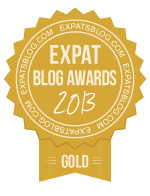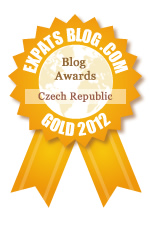 As part of my quest to find some sun when I'm in the UAE, I've arranged a day trip to Oman. The plan is to cruise on a traditional Omani dhow, down the fjords, to see some dolphins, visit Telegraph Island, and for a bit of swimming. So here's a little about Oman.
As part of my quest to find some sun when I'm in the UAE, I've arranged a day trip to Oman. The plan is to cruise on a traditional Omani dhow, down the fjords, to see some dolphins, visit Telegraph Island, and for a bit of swimming. So here's a little about Oman.
The Sultanate of Oman, سلطنة عُمان, is the second largest country on the Arabian Peninsula. It borders the UAE, Saudi Arabia and Yemen. There are two exclaves; Musandam and Madha. Oman is a little smaller than Kansas and is home to 3.15 million people. Muscat is the capital city.
 The Musandam Peninsula is separated from Oman by the UAE. It occupies a strategic location on the Strait of Hormuz, controlled by Oman and Iran, which is the only sea passage between the Gulf of Oman and the Persian Gulf. About 20% of the world's petroleum makes its way through the Strait of Hormuz. Musandam is 1,800 km² (695 square miles) and is home to 31,500 people.
The Musandam Peninsula is separated from Oman by the UAE. It occupies a strategic location on the Strait of Hormuz, controlled by Oman and Iran, which is the only sea passage between the Gulf of Oman and the Persian Gulf. About 20% of the world's petroleum makes its way through the Strait of Hormuz. Musandam is 1,800 km² (695 square miles) and is home to 31,500 people. Inside of the UAE, halfway between Musandam and Oman is Madha. It is about 75 km² (29 miles²). But within Madha is Nahwa, a UAE enclave. So inside of the UAE is a piece of Oman that has a piece of the UAE in it. How's that for confusing?
Inside of the UAE, halfway between Musandam and Oman is Madha. It is about 75 km² (29 miles²). But within Madha is Nahwa, a UAE enclave. So inside of the UAE is a piece of Oman that has a piece of the UAE in it. How's that for confusing? Oman had an empire, from the 17th century, and it competed with Portugal and Great Britain for control of the Persian Gulf and the Indian Ocean. Oman's empire lost it's influence during the 20th century and it became heavily influenced by the UK.
 Oman is an absolute monarchy where the sultan holds all legislative, executive and judiciary power. The Sultan of Oman is Qaboos bin Said Al Said who came to power in 1970 when he overthrew his father. He is currently the Middle East's longest-serving ruler. Accordingly, political parties are illegal in Oman. The country's laws are based on sharia - Islamic law. Like other Middle East countries, Oman has a problem with Jews and Gays. Oman does not officially recognize Israel and homosexuality is currently punishable by three years in prison.
Oman is an absolute monarchy where the sultan holds all legislative, executive and judiciary power. The Sultan of Oman is Qaboos bin Said Al Said who came to power in 1970 when he overthrew his father. He is currently the Middle East's longest-serving ruler. Accordingly, political parties are illegal in Oman. The country's laws are based on sharia - Islamic law. Like other Middle East countries, Oman has a problem with Jews and Gays. Oman does not officially recognize Israel and homosexuality is currently punishable by three years in prison. Oil is the country's biggest industry but it doesn't produce as much oil as the UAE, Saudi Arabia or Iran. Oman is trying to diversify its economy in order to reduce the dependency on dwindling oil reserves. Currently about 60% of the workforce is made up of expats.
Oil is the country's biggest industry but it doesn't produce as much oil as the UAE, Saudi Arabia or Iran. Oman is trying to diversify its economy in order to reduce the dependency on dwindling oil reserves. Currently about 60% of the workforce is made up of expats.
Here's an Omani travel video that I found on YouTube. The second half talks about the dhow cruises from Musandam.
©Unravel Travel TV




























No comments:
Post a Comment